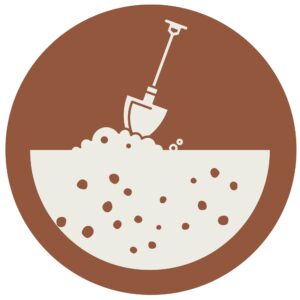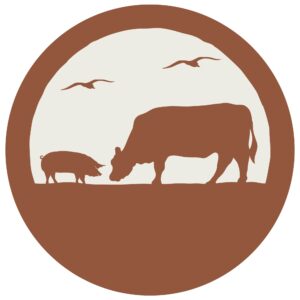
Basics
A handful of soil is filled with thousands if not millions of life forms working together to create nutrients and aereate the soil. Soil is a natural resource that is commonly overlooked because we see it everywhere, yet the kind of soil needed for food production is being lost rapidly across the country and the world.

Management
Managing for soil health allows landowners to work with the land – not against – to reduce erosion, conserve water, improve nutrient cycling, save money on inputs, and ultimately improve the resiliency of their working land for future generations.

Composting
Composting provides multiple benefits for the soil and water, and ultimately for the longevity and health of your land. Reducing waste and adding organic matter to the soil can help with nutrient retention, reducing the need for chemical fertilizers and herbicides, adding beneficial microorganisms, and ultimately grow better quality crops and plants.

Cover Crops
Cover Crops are plants grown primarily to benefit the successful growth of other future crops. Incorporating these into your soil management plan can help with soil erosion, improve soil health, suppress weeds, control pests and diseases, increase biodiversity, and can bring a host of other benefits to your farm or garden, including increased profitability.

Regenerative Practices
Regularly adding organic material helps enhance soil quality, soil structure, water and nutrient holding capacity, and helps protect the soil from erosion and compaction.

Mud and Manure
Having livestock means having manure. Manure can be an issue or an asset, depending on how it’s managed. Avoid making mud and turn manure into fertilizer using these tips.

Web Soil Survey
The web soil survey provides property owners with up-to-date soil information used for making land-use and management decisions on their property. Forestland in eastern Marion County is excluded from the Web Soil Survey. The tool’s interface can be a bit overwhelming at first, so here are the steps to obtain soil information.
